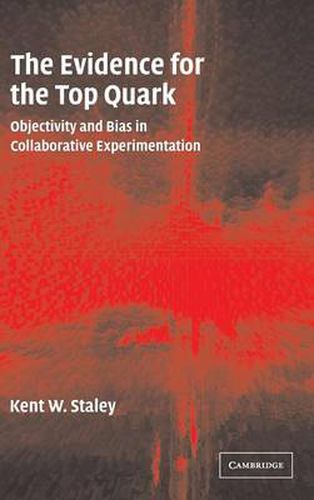Readings Newsletter
Become a Readings Member to make your shopping experience even easier.
Sign in or sign up for free!
You’re not far away from qualifying for FREE standard shipping within Australia
You’ve qualified for FREE standard shipping within Australia
The cart is loading…






The Evidence for the Top Quark offers both a historical and philosophical perspective on an important recent discovery in particle physics: the first evidence for the elementary particle known as the top quark. Drawing on published reports, oral histories, and internal documents from the large collaboration that performed the experiment, Kent Staley explores in detail the controversies and politics that surrounded this major scientific result. At the same time the book seeks to defend an objective theory of scientific evidence based on error probabilities. Such a theory provides an illuminating explication of the points of contention in the debate over the evidence for the top quark. Philosophers wishing to defend the objectivity of the results of scientific research must face unflinchingly the realities of scientific practice, and this book attempts to do precisely that.
$9.00 standard shipping within Australia
FREE standard shipping within Australia for orders over $100.00
Express & International shipping calculated at checkout
The Evidence for the Top Quark offers both a historical and philosophical perspective on an important recent discovery in particle physics: the first evidence for the elementary particle known as the top quark. Drawing on published reports, oral histories, and internal documents from the large collaboration that performed the experiment, Kent Staley explores in detail the controversies and politics that surrounded this major scientific result. At the same time the book seeks to defend an objective theory of scientific evidence based on error probabilities. Such a theory provides an illuminating explication of the points of contention in the debate over the evidence for the top quark. Philosophers wishing to defend the objectivity of the results of scientific research must face unflinchingly the realities of scientific practice, and this book attempts to do precisely that.